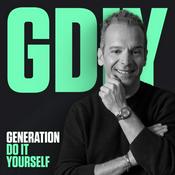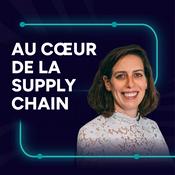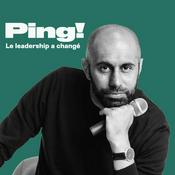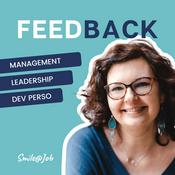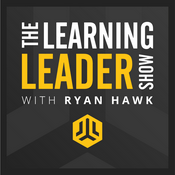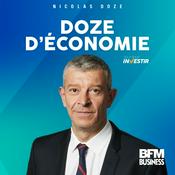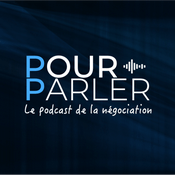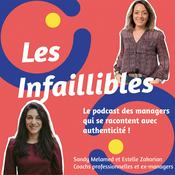292 épisodes
- Share Episode
We dive into the shifting landscape of developer relations and the new necessity of optimizing documentation for both humans and LLMs. Melinda Fekete joins from Unleash, and suggests transitioning to platform to help get this right by utilizing LLMs.txt files to cleanly expose content to AI models.
The conversation then takes a look at the June GCP outage, which was triggered by a single IAM policy change. This illustrates that even with world-class CI/CD pipelines, deploying code using runtime controls such as feature flags is still risky. Feature flags can't even save GCP and other cloud providers, so what hope do the rest of us have.
Finally, we discuss the practical implementation of these systems, advocating for "boring technology" like polling over streaming to ensure reliability, and conducting internal "breakathons" to test features before a full rollout.
💡 Notable Links:
Diátaxis - Who is article this for?
Fern - Docs Platform
Episode: Latency is always more important than refreshness
Episode: DORA 2025 Report
🎯 Picks:
Warren - Show: Bosch - LA Detective procedural
Melinda - Wavelength - Party Game The Productivity Delusion: Gizmos, Resentment Metrics, and the Art of Deleting Code
30/1/2026 | 50 minShare Episode
Dorota, CEO of Authress, returns to apply the US Supreme Court’s definition of obscenity to a scandalous topic: Engineering Productivity. In a world obsessed with AI-driven efficiency, Dorota and Warren argue that software development productivity has nothing to do with manufacturing "gizmos" and everything to do with feelings. They dismantle the factory-floor mentality that equates typing speed with value, suggesting instead that the most productive work often happens while staring out a train window or disassociating in the shower.
The conversation takes a dark turn into the reality of performance reviews. If productivity is subjective, how do you decide who gets promoted? Dorota proposes the "Resentment Metric"—ignoring Jira tickets in favor of figuring out who the team has secret concerns fo. They also roast the "100% utilization" fallacy, noting that a fully utilized highway is just a parking lot, and the same logic applies to engineering teams that don't schedule downtime for actual thinking.
Ultimately, they land on a definition of productivity that would make any optimizer proud: deleting things. If the best code is no code, then the most productive engineer is the one removing waste, deleting replicas, and emptying S3 buckets. The episode wraps up with a credit-card-sized transformer (it's a tripod) and a book recommendation on why your international colleagues might be misinterpreting your silence.
💡 Notable Links:
DevOps Episode: DORA 2025 Report
Research: Happy software developers solve problems better
🎯 Picks:
Warren - Book: The Culture Map
Dorota - GEOMETRICAL Pocket tripod- Share Episode ⸺ Episode Sponsor: Rootly AI - https://dev0ps.fyi/rootlyai
Paul Conroy, CTO at Square1, joins the show to prove that the best defense against malicious bots isn't always a firewall—sometimes, it’s creative data poisoning. Paul recounts a legendary story from the Irish property market where a well-funded competitor attempted to solve their "chicken and egg" problem by scraping his company's listings. Instead of waiting years for lawyers, Paul’s team fed the scrapers "Project Yellow Brick Road": fake listings that placed the British Prime Minister at 10 Downing Street in Dublin and the White House in County Cork. The result? The competitor’s site went viral for all the wrong reasons, forcing them to burn resources manually filtering junk until they eventually gave up and targeted someone else.
We also dive into the high-stakes world of election coverage, where Paul had three weeks to build a "coalition builder" tool for a national election. The solution wasn't a complex microservice architecture, but a humble Google Sheet wrapped in a Cloudflare Worker. Paul explains how they mitigated Google's rate limits and cold start times by putting a heavy cache in front of the sheet, leading to a crucial lesson in pragmatism: data that is "one minute stale" is perfectly acceptable if it saves the engineering team from building a complex invalidation strategy. Practically wins.
Finally, the conversation turns to the one thing that causes more sleepless nights than malicious scrapers: caching layers. Paul and the host commiserate over the "turtles all the way down" nature of modern caching, where a single misconfiguration can lead to a news site accidentally attaching a marathon runner’s photo to a crime story. They wrap up with picks, including a history of cryptography that features the Pope breaking Spanish codes and a defense of North Face hiking boots that might just be "glamping" gear in disguise.
🎯 Picks:
Warren - The North Face Hedgehog Gore-tex Hiking Shoes
Paul - The Code Book - Share Episode
"Those memes are not going to make themselves."
Dorota, CEO of Authress, joins us to roast the 2025 DORA Report, which she argues has replaced hard data with an AI-generated narrative. From the confusing disconnect between feeling productive and actually shipping code to the grim reality of a 30% acceptance rate, Warren and Dorota break down why this year's report smells a lot like manure.
We dissect the massive 142-page 2025 DORA Report. Dorota argues that the report, which is now rebranded as the "State of AI-Assisted Software Development", feels less like a scientific study of DevOps performance and more like a narrative written by an intern using an LLM prompt. The duo investigates the "stubborn results" where AI apparently makes everyone feel like a 10x developer, where the hard results tell a different story. AI actually increases software and product instability — failing to improve.
The conversation gets spicy as they debate the "pit of failure" that is feature flags (often used as a crutch for untested code) and the embarrassing reality that GitHub celebrates a mere 30% code acceptance rate as a "success." Dorota suggests that while AI raises the floor for average work, it completely fails when you need to solve complex problems or, you know, actually collaborate with another human being.
In a vivid analogy, Dorota compares reading this year's report to the Swiss Spring phenomenon — the time of year when farmers spray manure, leaving the beautiful landscape smelling...unique. The episode wraps up with a reality check on the physical limits of LLM context windows (more tokens, more problems) and a strong recommendation to ignore the AI hype cycle in favor of a much faster-growing organism: a kitchen countertop oyster mushroom kit.
💡 Notable Links:
AI as an amplifier truism fallacy
DORA 2025 Report
DevOps Episode: VS Code & GitHub Copilot
Where is the deluge of new software - Impact of AI on software products
Impact of AI on Critical Thinking
🎯 Picks:
Warren - The Maximum Effective Context Window
Dorota - Mushroom Grow Kit - Share Episode ⸺ Episode Sponsor: Incident.io - https://dev0ps.fyi/incidentio
"My biggest legacy at Google is the amount of systems I broke." — Sam Goto joins the show with a name that strikes fear into engineering systems everywhere. As a Senior Staff Engineer on the Chrome team, Sam shares the hilarious reality of having the last name "Goto," which once took down Google's internal URL shortener for four hours simply because he plugged in a new computer.
Sam gets us up to speed with Federated Credentials Management (FedCM), as we dive deep into why authentication has been built despite the browser rather than with it, and why it’s time to move identity from "user-land" to "kernel-land". This shift allows for critical UX improvements for logging in all users irrespective of what login providers you use, finally addressing the "NASCAR flag" problem of infinite login lists.
Most importantly, he shares why you don't need to change your technology stack to get all the benefits of FedCM. Finally, Sam details the "self-sustaining flame" strategy (as opposed to an ecosystem "flamethrower"), revealing how they utilized JavaScript SDKs to migrate massive platforms like Shopify and 50% of the web's login traffic without requiring application developers to rewrite their code.
💡 Notable Links:
HSMs + TPM in production environments
Get involved: FedCM W3C WG
The FedCM spec GitHub repo
TPAC Browser Conference
🎯 Picks:
Warren - Book: The Platform Revolution
Sam - The 7 Laws of Identity and Short Story: The Egg By Andy Weir
Plus de podcasts Business
Podcasts tendance de Business
À propos de Adventures in DevOps
Join us in listening to the experienced experts discuss cutting edge challenges in the world of DevOps. From applying the mindset at your company, to career growth and leadership challenges within engineering teams, and avoiding the common antipatterns. Every episode you'll meet a new industry veteran guest with their own unique story.
Site web du podcastÉcoutez Adventures in DevOps, Ressentir ou d'autres podcasts du monde entier - avec l'app de radio.fr
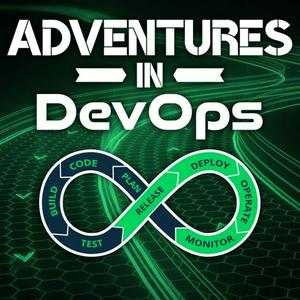
Obtenez l’app radio.fr gratuite
- Ajout de radios et podcasts en favoris
- Diffusion via Wi-Fi ou Bluetooth
- Carplay & Android Auto compatibles
- Et encore plus de fonctionnalités
Obtenez l’app radio.fr gratuite
- Ajout de radios et podcasts en favoris
- Diffusion via Wi-Fi ou Bluetooth
- Carplay & Android Auto compatibles
- Et encore plus de fonctionnalités


Adventures in DevOps
Scannez le code,
Téléchargez l’app,
Écoutez.
Téléchargez l’app,
Écoutez.










